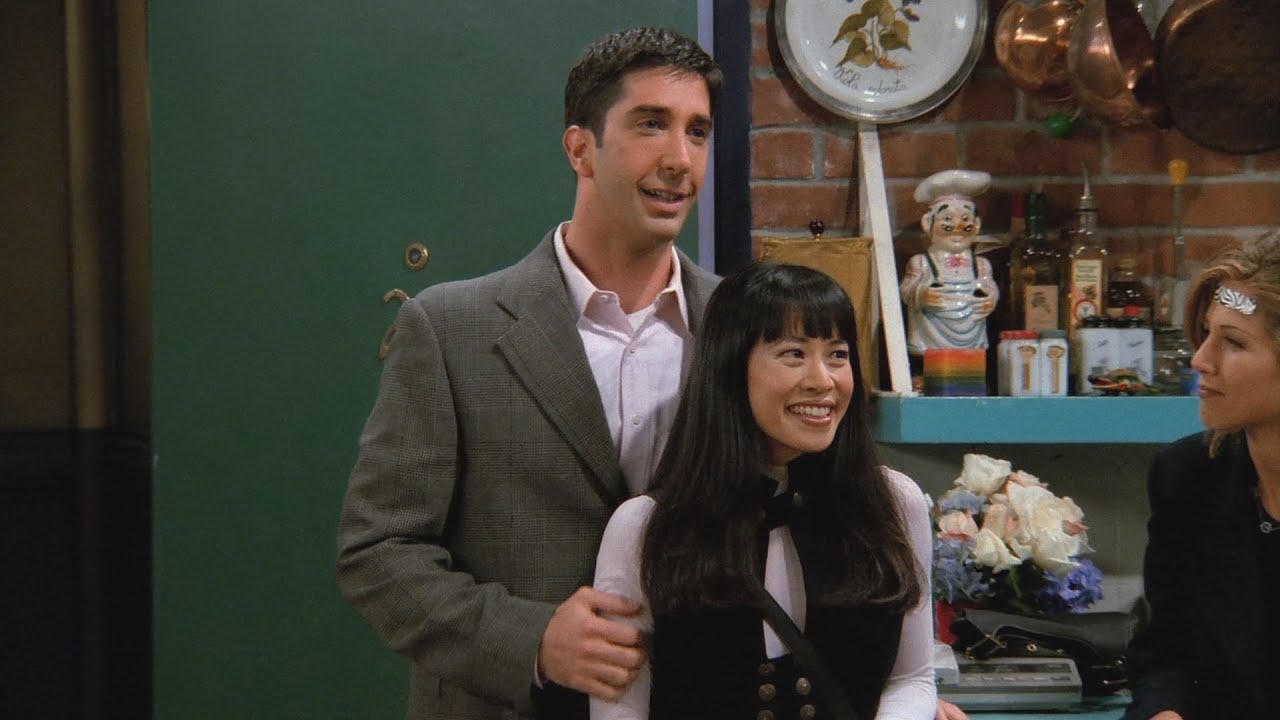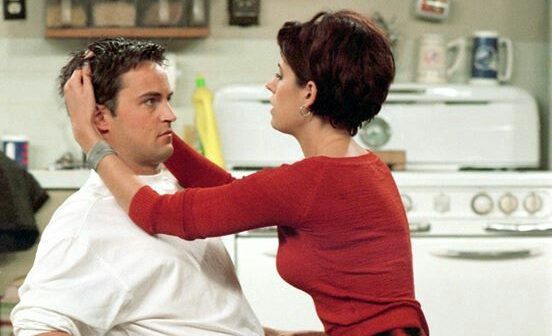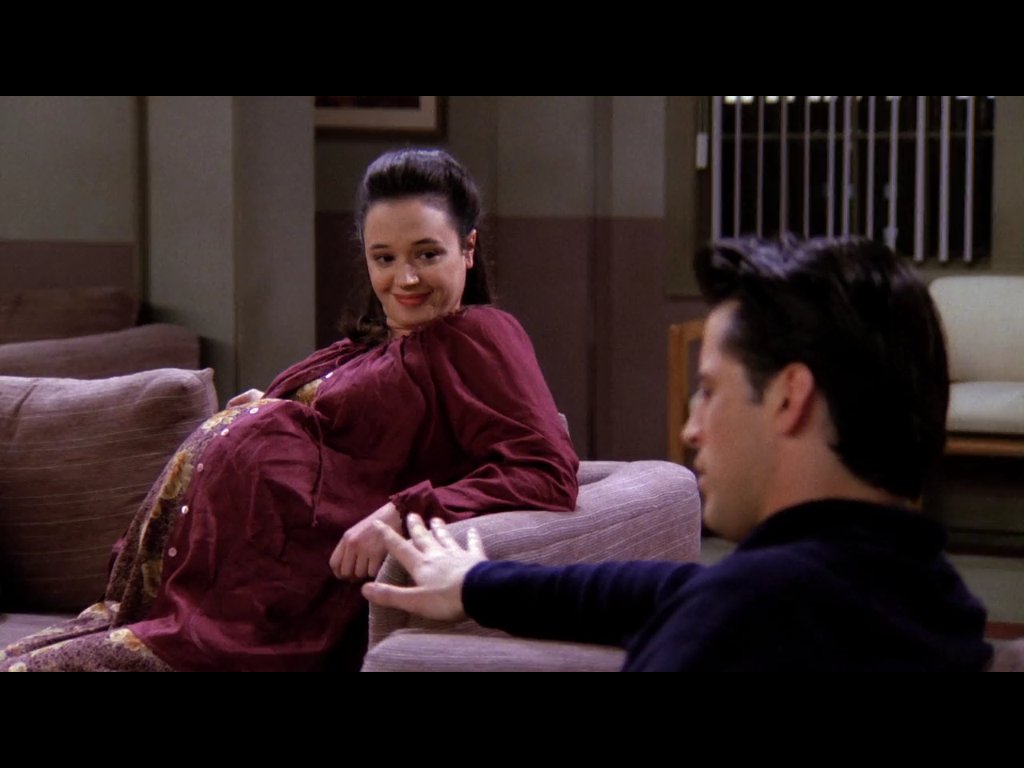Let’s get something straight, Ross Geller is the worst character on this show, but David Schwimmer is the best actor.
One of the beauteous aspects of Friends is that the cast act as a unit. When one character has a problem, the rest of the group react unanimously. They are a collective unconscious except when differing views are needed. While this is establishing the motif of friendship… it’s also the show’s biggest weakness.
You don’t need to be watching very closely to see one character say a line that was clearly written for someone else.
(Ex. In The One with 5 Steaks and an Eggplant, Ross, Chandler, and Monica pay for the whole gang to see Hootie and the Blowfish, when Phoebe, Joey, and Rachel react disappointed, Ross gives the line:
“Could you guys be less enthused?“
While I added the emphasis on “be,” that line was clearly written for Chandler, but they needed to divvy it up between the characters more — equality in lines.)
Despite this, Schwimmer stands out among the rest because even when a line needs to be altered, he never feels out of character.
This isn’t meant to put any of the others down, but given David Schwimmer’s acting career (Shakespearean theatre) parallels how Friends was filmed (in front of a live-studio audience) and the fact that he was chosen for the role before they even had casting… it’s clear that he was a shoe-in to steal the spotlight – even if most of the time he plays the happy medium to keep us grounded in reality.

However, some may be unconvinced that Ross is central to the show’s success. I say this because I have met many people that have said
“Ross adds nothing to the show,”
but seldom provide more than that. This is one of those situations where you can see who is a talented actor vs. what is written well.
To vaguely quote Modest Mouse, people often give actors the credit that belongs to the writers, but it can be hard to determine who is more responsible – especially since the writers were known to pitch ideas to the actors to see what they come up with (ex. Episode 601, Chandler says, “I don’t think they’re as married as they are two bottles of vodka walking around in human form” – that’s all Matthew Perry, the direction he was given was, “… as married as they are totally drunk.”).
Despite this, it is Schwimmer’s career as Ross that is a perfect example of how an actor can elevate the written material.
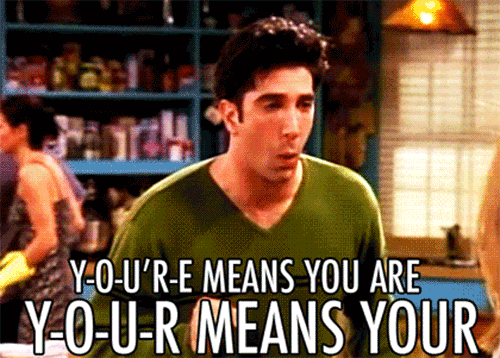
The best way to showcase this is to take the character out of context.
- Ross is a cheater.
Ross cheats on just about all of his girlfriends: Julie, Rachel, Bonnie, the woman from upstate concurrently with the woman from Poughkeepsie, Mona (-ish) — even on Carol with Phoebe — and Ross even makes Carol cheat on her life partner (later wife), Susan, with a kiss. - Ross is abusive.
Not in the physical sense, but he is the poster child of an abusive boyfriend. Being a notorious cheater, he is also supremely jealous, making him suspicious and controlling. - Ross has two illegitimate children.
From two (of three) failed marriages. - Ross is condescending.
Ross is egotistical and often belittles peoples’ intelligence. He toots his own horn whenever opportune and showcases his achievements, rock collections, dissertations, and slideshows like trophies.
In short, on paper, Ross is an asshole.
However, Schwimmer plays him as easily one of the most sympathetic characters and he doesn’t need Chandler’s self-deprecating humor (and history) to do so; it’s Schwimmer’s charisma that makes you gravitate to Ross. That is pure talent.
Ross Geller
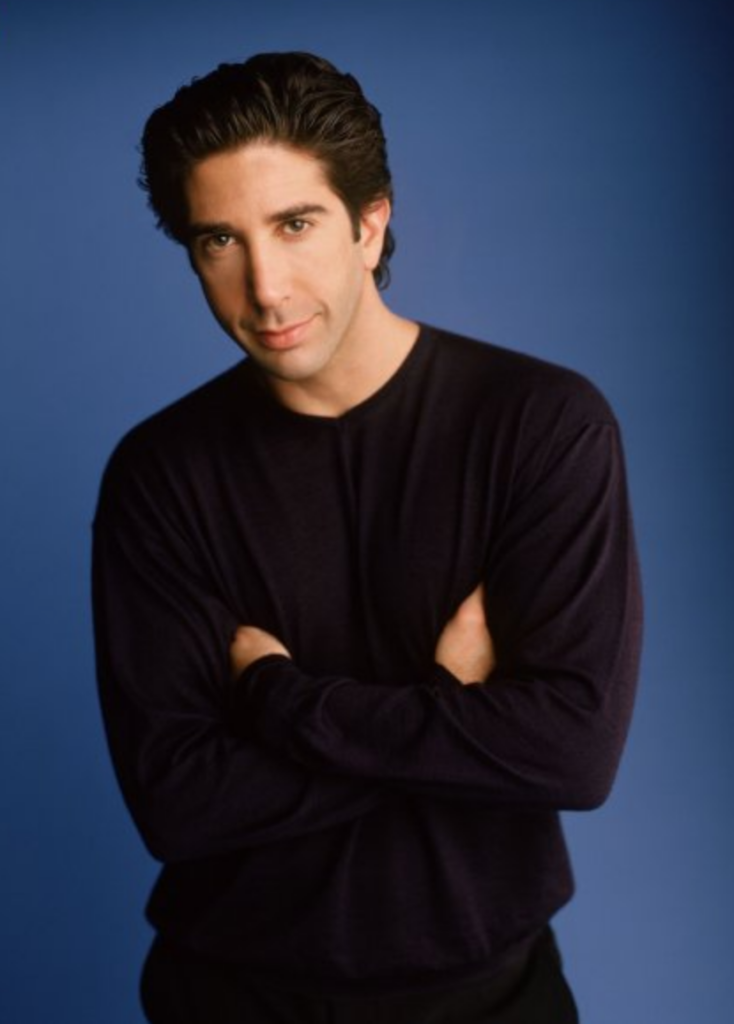
1. Background
Ross Geller is the eldest son of Jack and Judy Geller. Judy was considered “barren” so his parents praised him as a medical marvel – a proverbial miracle baby. This makes Ross feel more special than anyone else — hence why he can be condescending — and the birth of sister proves him to be less special. But Ross does not accept that, so his feelings of “special-ness” shift to “entitlement” which thereby makes him competitive — with his sister because she makes him less special — and controlling — because he wants the life he was promised by his parents, to be special/different from everyone else.
Now these traits (entitlement and controlling) could’ve made Ross very unlikeable, since on their own, they’re the mark of arrogance. However, Ross would only be arrogant if Monica (his sister) was the only one that didn’t regard him as special. In reality, just about everyone disregards Ross as special, so rather than be arrogant, Ross suffers naïveté – this is what Schwimmer exploits to be charismatic.
The naïveté puts Ross’ blinders on. He’s not aware that he’s just like everyone else, he just thinks other people don’t see how special he is. It’s why when people (but especially women) show any sign of affection or interest in him, he is immediately smitten because he feels they recognize that he’s special. He goes all-in to whatever relationship he commits to – hence, why he’s been married so many times.
His naïveté is also why he’s never an ass to Rachel’s Paulo, but instead makes fun of him behind his back. Additionally, his naïveté is further exemplified with his musical career. While others deride his talent, he believes himself to be an artist.
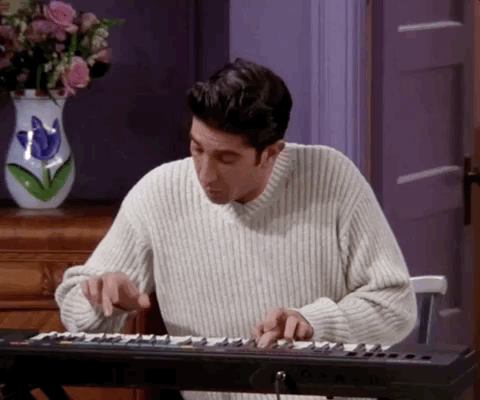
2. Ross Geller’s Type
Ross’ profession is an indication for his “type” — the women he dates.
He’s a paleontologist… but the writers lump that in with anthropology and archaeology as well. Now anthropology is the study of other peoples’ cultures, and you can see through all ten seasons that Ross has the most diverse group of loved ones. Even if they’re not actually from foreign lands, they are diversified from him.
In short, Ross pursues the Exotic Other because he’s enticed by other cultures. Just look at Julie (Chinese heritage), Emily (European heritage), and Charlie (African-American heritage).
Taking that into account, Ross dates one of two people and both speak to his character.
- Type A) A person he can learn from; someone of equivalent intellect or of a different culture. Or…
- Type B) A person he can teach – teaching later becomes his profession, but also serves his intelligence as he wants to shine.
One of the most interesting things about these two types is that Type A’s are more significant and lead to longevity. Type B’s are the people he dates that make him feel good — stroking his own ego — but don’t have longevity.
So let’s go down the list.
A) Carol Willick
Not much is known about Ross and Carol’s relationship outside of the fact that Carol is a lesbian and that’s what led to their divorce. She also plays lacrosse and golf… but I don’t think that means anything.
However, Carol, being a lesbian, still purports that Ross is attracted to the Exotic Other since she is a lesbian. While, some may argue, “Yeah… but Ross didn’t know Carol was a lesbian…” I say there’s enough evidence to prove them wrong in two episodes.
1. In The One with the Boobies, Fisher Stevens guest stars as Roger, a psychologist that doubles as the writers’ medium for psycho-analyzing their characters. Lazy? Maybe, but brilliantly executed. In any case, Roger is spot-on with Chandler’s analysis and later implies that Ross knew Carol was a lesbian before they were married.
Of course, Roger claims Ross wanted his marriage to fail to make Monica look better, but he also says that was one of many options. Truthfully, Ross probably did recognize that Carol was a lesbian and the result was he wanted to learn more.
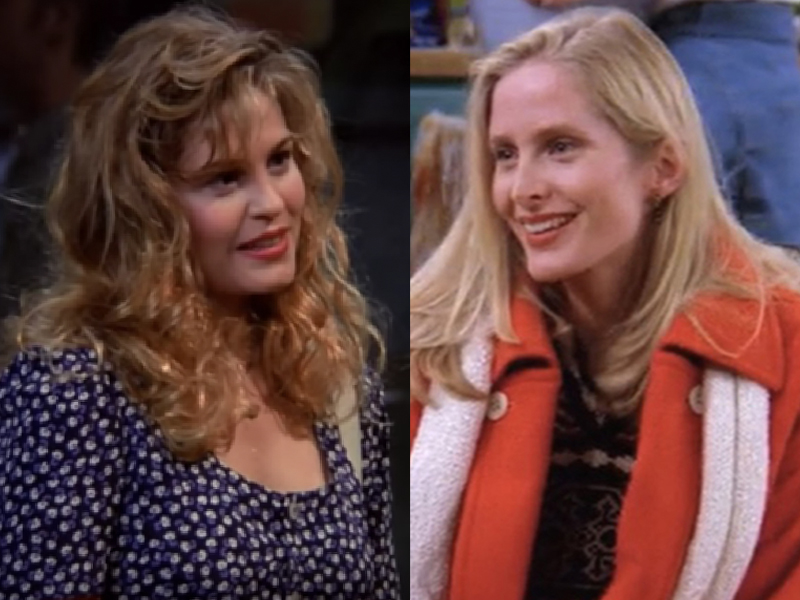
See, Carol is also the first woman Ross had intercourse with, so it’s been an intensive learning experience.
It’s also why he is all psyched out — which he openly admits to Rachel in The One with Phoebe’s Husband,
“You know I’ve only been with one woman my whole life and she turned out to be a lesbian. So now I’ve got myself all psyched out.“
And indeed, I think we all have wondered if this makes Ross an effeminate, intimate, and sensitive lover or if it’s all wrong because he was playing on a different field entirely.
2. (Although, I guess this is technically my third point) In the “What If” episode, Ross discovers that Carol is a lesbian before she does. Now, granted, it’s a hypothetical and therefore non-canonical episode, but it shows that Ross (as a character) would have figured it out eventually.
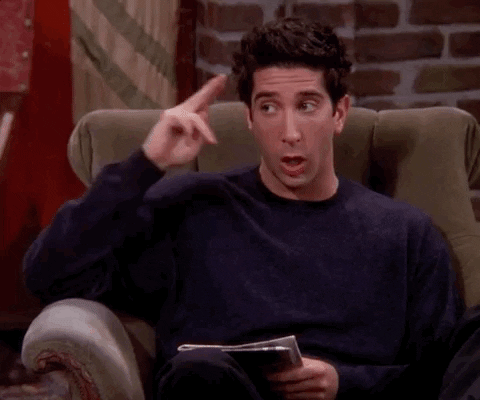
Long story short, Carol Willick is Type A — a woman he learns from.
Note: I’m skipping Julie because I’ll save her for the end.
2) Rachel Green
This relationship has obviously received the most screen time being that it took place among two core cast members, but it’s also a great example of how Ross dates Type A or Type B, but not both.
Rachel (who will be more thoroughly analyzed in the next breakdown) is, at first, Type A. This is because in high school, she is the popular girl; the one everyone wants to be or be with. The fact that people recognize how “special” she is makes Ross all the more attracted to her because he wants to be recognized in the same regard.
However, when Rachel enters the series (in the Pilot episode), she has been transformed from Type A — someone Ross can learn from — to Type B — someone Ross can teach.
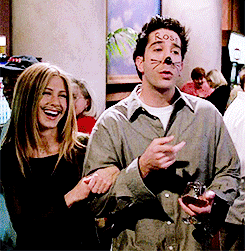
Again, when Rachel enters the series, she serves as a sort of audience-surrogate, the fish-out-of-water character which everyone can impart their wisdom on. She is meant to be taught.
Of course, Ross pursues Rachel, not just because she fits Type B, but because he feels entitled to her as well. This is most noticeable in The One with the Prom Video, which features Ross “saving” Rachel from another man because, she’s “[his] to save” as “[she’s his] lobster.”
However, Ross and Rachel’s relationship begins to crumble as soon as she gets a better job.
As I’ve mentioned in my Character Equilibrium, this is what establishes Rachel as the main protagonist instead of Monica because she becomes a self-made woman. When Rachel was a inadequate waitress with little knowledge of the real world, she was ripe to be taught, but once she begins to transition into a career-driven woman, she stations herself as the main protagonist and grows further and further from Ross.
During their relationship’s decline, Ross tries to convert Rachel from a Type B to a Type A — someone he can learn from — but this fails miserably. When Rachel invites Ross to a fashion lecture, he falls fast asleep. Rachel spends time with Mark — not to spite Ross — but because he has an interest in who she has become, not who she was.
Ultimately, Ross and Rachel’s relationship fails because Ross loses control — Rachel can no longer be taught. It’s also why this relationship should have been viewed by the audience as a good thing. Rachel has finally grown up and Ross can finally move on — he’s living 9 years in the past — but, as with the Joey and Rachel thing, the audience could not let the couple go. Marta Kauffman and David Crane have even said that their relationship was supposed to be a one-season long run, it was not intended to be the focal point.
“In the initial pitch, there was no Ross-and-Rachel as a romantic entity.” – David Crane (Creator)
As some context for that quote, Crane goes on to say they developed the relationship as something to shoot for in the pilot, but that relationship was intended to be finished as Scott Silveri later sums up…
“We’d ridden that bus as far as we cared to.” – Scott Silveri (Executive Producer/Writer)
In context, he’s referring to after season 3, when Ross and Rachel had finally (conclusively) broken up.
At the same time though, I don’t blame the audience — partially because I’m one of them, but also — because David Schwimmer’s charisma made me want Ross to succeed; to get what he wanted.
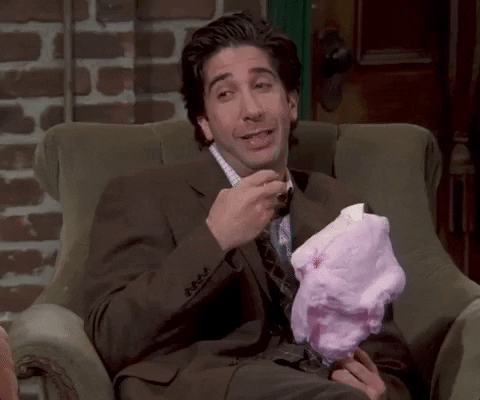
3) Bonnie
Bonnie, like Rachel before her, is a Type B — someone Ross can teach. It’s not serious and this is evidenced by the fact that Ross dumps Bonnie after she shaves her head; it’s more carnal than intellectual. He retreats to Rachel, not because of their history, but because she has elevated since their breakup to a Type A — someone he can learn from — so she’s more “long-term” than Bonnie.
4) Cheryl
Better known as the literal “hot mess,” played by Rebecca Romijn, makes her appearance in The One with the Dirty Girl, who is brilliant but horribly filthy. She’s a Type A, because she matches Ross on an intellectual level and thereby he’s more willing to sacrifice things like cleanliness to be with her. The same cannot be said for Type B’s who he rarely indulges in for very long and if Cheryl was a Type B, you can bet Ross never would have tried to have sex in the mess.
5 & 6) The Girls from Poughkeepsie and Upstate
This is a good point to stop and address these two relationships in The One with the Girl from Poughkeepsie as they’re a perfect example of Type A and Type B.
Ross is smitten by the girl from Poughkeepsie who clearly fits the bill for Type A (a mental equivalent), but he’s torn between her and a girl from upstate who is not funny, stupid, and a little racist (latter two points later redacted), who is clearly a Type B.
While his fellow friends believed this to be an easy conundrum, Ross is torn because while Type B is convenient, he knows Type A is long-lasting (albeit long-distance). His reluctance to break it off with the girl from Poughkeepsie when he was seeing someone upstate is all the more evidence that he’s willing to go the “extra mile” for Type A over Type B.
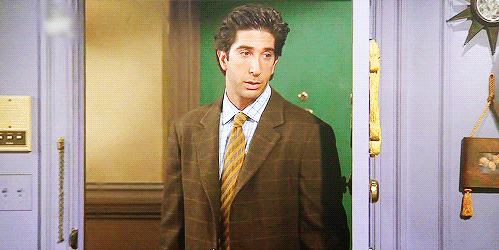
7) Emily Waltham
As I mentioned earlier, Ross is fascinated by other cultures and he’s been gradually broadening his horizons. Emily of course is of European heritage and this puts her into Type A, someone he can learn from. He’s interested in her culture (see The One with all the Rugby)and her heritage.
Truthfully, that’s all I have to say about that as they shouldn’t have broken up and there was only a production reason behind their divorce — her arc was supposed to go on much longer.
The reason was because the actress Helen Baxendale got pregnant in between Seasons 4 and 5. She was a British citizen and therefore could not fly back to film Season 5, so they wrote her out.
(I’m always bummed when watching this relationship arc as it deserves to continue longer, but instead falls apart inorganically; Ross would not say Rachel if he did not love Rachel, and he does not love Rachel at this point.)
8) Elizabeth Stevens
A literal portrayal of Type B.
And, of course, there are a lot of single dates. The girl in the library is a Type B in that she is taught by Ross (through his book). Mona is a Type B because she looks forward to Ross’ rock collection. Rachel’s sister is a Type B who Ross shows his slides to. Elizabeth Hornswoggle is Type A… and so on and so forth.
(I’ll mention Charlie Wheeler in the conclusion.)
3. Ross Geller’s Soulmate is Julie
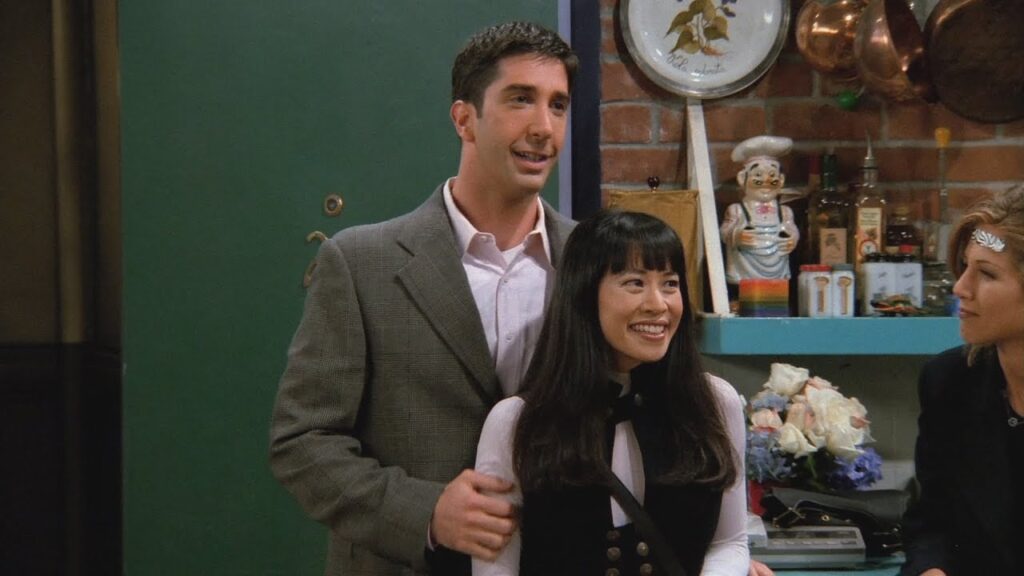
Ultimately, Ross Geller’s Soulmate is Julie as she is a Type A — from another culture — and a mental equivalent. In fact, the writers were brilliant in how they crafted Julie since she’s a woman Ross met in grad school and she acts as an obstacle to Rachel (the girl from Ross’ high school).
By that logic alone, Ross is doing the smart, healthy thing by moving on with Julie because it’s less in the past.
Then, when Julie befriends Monica (Ross’ sister), Rachel feels increasingly threatened because she sees Julie entering the group via the central figure. The fact that Julie and Monica enjoy shopping together, that Julie is dating Ross, and Julie is much smarter than Rachel makes her “Rachel but better” or — as in the case of my analysis — Rachel but a Type A.
In fact, that’s why the pros/cons list is so intriguing because the only negative Ross comes up with for Julie is “She’s not Rachem [sic].” The reason is because Julie is Rachel, but better. Ross chooses Rachel because he recognizes the similarities, but is unable to see that Julie is “new and improved” over the “outdated original.” As a result, he suffers from a bad case of nostalgia, severe entitlement, and the sunk-cost fallacy.
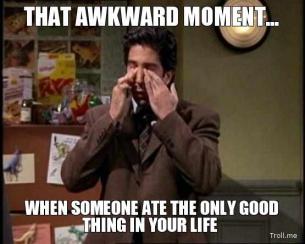
Perhaps the most damning evidence that these two are MEANT to be together is that the writers had a Ross/Julie breakup scene scripted, but they cut it from the show because they were afraid the audience would side with Julie — as they should.
Although that scene was not filmed, it clearly left an impression on the writers as they felt it necessary to tie up Julie’s loose ends by having her run off with Russ (a Ross substitute).
In addition, Lauren Tom emulates Schwimmer’s Ross with Julie masterfully, playing up her naïveté to gain the audience’s sympathy. While Rachel views Julie as a power-house and usurper, Julie views Rachel with a sensitive aloofness, in the same way Ross did.
What makes Julie work is that she’s very similar to Ross without being Ross because — as mentioned in the introduction — Ross, out of context, is an asshole. It’s why when they essentially recreated Julie, but as a full-blown Ross, you get Charlie Wheeler.
Conclusion: Let’s Talk Charlie Wheeler

Charlie Wheeler is Ross Geller but as a woman. And even though Aisha Tyler does well with her role, she does not have the Schwimmer charisma.
Charlie was meant to be the perfect woman for Ross so that the audience wouldn’t shirk the series for taking away (what many considered) Ross’ true love (i.e. Rachel). As a result, Charlie was crafted as a catalyst for Joey and Rachel to get together while having Ross move on organically. This works… for the most part.
The parallels between Charlie and Julie are manifold, both being American, but of different cultural heritage. Both being Type A’s that rival Ross’ intelligence and give him someone to learn from. Both also have the same naïveté/aloofness with Rachel.
However, the challenge was in giving Charlie and Ross a history. So, rather than make-up a grad-school story, they have Charlie parallel Ross’ history with a previous gay lover and an affinity for his same Type A’s and Type B’s.
Charlie is known for dating only Nobel Peace Prize winners (and other geniuses), but then she dates Joey. This emulates Ross’ Type A (preferred) and Type B (feel good fling).
However, then when Charlie dumps Ross to be with her ex — as Ross did with Julie — she comes across as an asshole. The sad truth is that she was no more/less a jerk than Ross; in fact, Charlie Wheeler was being a Ross.
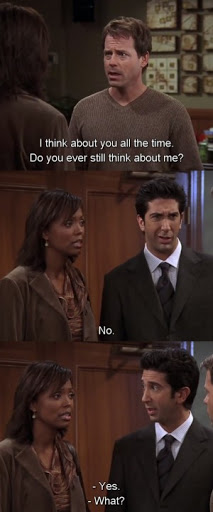
The problem enlies in Ross’ character; on paper, he’s an asshole, but Schwimmer’s charisma keeps him sympathetic and affable. To have a supporting character portray the same character without Schwimmer, only further exemplifies his talent and the character at his core.
In the end, Ross and Rachel get back together and — in fairness — she’s become a Type A so it will have some longevity, but Julie will always be Ross’ soulmate.
After all, you don’t buy a cat with a girl unless you’re serious.

